“The Fifth Estate” vs. “The Imitation Game”
It can sometimes be hard to say what works or doesn’t work in a film. Considering all the different elements that goes into a film’s usual production, it’s a miracle anything comes together coherently. But every now and again, you get not just one but TWO films that serve as mirror images for one another. A similar premise, sense of prestige, sense of character, even down to the same lead actor. The difference is that one got everything right while the other got everything wrong. One film zigged everywhere the other film zagged, and turned out the better for it.
If I were to tell you about a film starring Benedict Cumberbatch as a moody genius doing ground-breaking work in computers, for good and for bad, but eventually gets thrown under the bus by his own government, would I be talking about 2013’s “The Fifth Estateâ€, or 2014’s “The Imitation Gameâ€?
Trick question. Technically, I’d be talking about both. Difference is that one is a great film worthy of its praise and its box-office returns, and the other is pointless tripe not worth the plastic for the DVD’s its printed on.
NOTE: As both of these films are about real people and/or real world events, certain facts or events have been changed by the filmmakers for whatever reason. This post will exclusively be covering the films, how they work or don’t work as films, and the information they try to present to the audience. The real world facts will not be covered.
Its not just that “The Fifth Estate†is a bad film, or merely a failure of a film. It takes a subject matter that is huge in its paradigm-changing implications, and reduces it to empty stylishness and personal vendettas. It takes a new fascinating subject (the internet working independently of the government and journalism), and wraps it in trite cliches. All scenes in “The Fifth Estate†boil down to a few things: people typing on computers, people uploading things to computers, and (here’s the clincher) people standing around computers talking about the things they plan to upload to computers.
That’s the whole film. Nothing but. They try to shake this up occasionally by having Assange and his partner (played by Daniel Bruhl) working on their laptops in hip Europeans nightclubs while sexy women dance around them, but fact is its still a pair of guys sitting typing on their laptops, which is NOT interesting. Hell “Swordfish†tried that over a decade ago, but at least it was just a stupid action film that knew what it was. THIS film is trying to have serious real world ramifications, which is just laughable.
An eerie overtone of the film is that it somewhat takes the side of the massive first world governments that Assange is trying to expose secrets on. We’re meant to feel sad when informants are forced to flee for their lives, or when diplomats lose their jobs in the aftermath of Wikileaks’ exposure. They forget the fact that most of the attention was brought about thanks to airstrike footage of Baghdad and the Afghan War Logs, or rather media related to two wars that the Western world was somewhat incredulous about fighting in the first place (to put it mildly). In entertainment, we have a natural predisposition to supporting the little guy and hoping he takes down the big guy. Its asking a lot of us to sympathize with and relate to a bunch of high-powered diplomats fighting a war we weren’t even sure we wanted in the first place.
Even here though, the film doesn’t have the courage to show the airstrike footage aside from a few blurry seconds at a time. That at least would engender a natural human reaction in us. This is akin to the blunders of Oliver Stone’s “Wâ€, which manage to gloss over the Florida re-count, 9/11, and Hurricane Katrina.
But these narrative missteps are mere window-dressing to the big fact of the film: by the end of it, we know nothing about Julian Assange. We know he’s abrasive and morally questionable, yes, but we’re given no indications as to why or what his true goal is. Questions are asked about his childhood and motivations, but never answered. Facts about him presented by Daniel Bruhl and the end-of-the-movie text come off as either petty or out of nowhere. Bruhl reveals at the end that his hair is white because he dyes it, a fact which lands with a resounding “So what?â€. And the end-of-the-movie text states that Assange is living at the Ecuadorian embassy while avoiding charges on sexual assault, which comes out of nowhere and has no context because (as far as the movie presents) we’ve never seen Assange have such inclinations.
My girlfriend is a massive fan of Benedict Cumberbatch, and even she was disappointed by “The Fifth Estateâ€. It has no connective thread, it’s uninterestingly filmed/presented, and completely wastes both its main and supporting cast (with David Thewlis and Peter Capaldi given nothing to do but talk over computers). The box office take was so dismal that the “Doctor Who” 50th Anniversary special outdid “Fifth Estateâ€â€™s entire box office run in a few short days. A complete waste from beginning to end and I’m furious having seen it.
…So what does “The Imitation Game†do right that “Fifth Estate†did wrong?
Well, first off: we get to know Alan Turing. We dig into his past, his motivations, what drives him and makes him tick. We see his youth as a bullied but brilliant student, his connection to and loss of his best friend Christopher to tuberculosis, his off-putting arrogance when he joins the code breakers at Bletchley Park during World War II, and his intensity as his focuses on building his machine to decrypt the uncrackable Enigma code used by the Nazis. We seem him loosen up and grow closer to his colleagues, eventually feeling comfortable enough to regularly share a pint at the on-base pub after work is done for the day. We get a sense of his moral fiber when he steps up as the first person to believe in the code-breaking skills of secretary Joan Clarke (played by Keira Knightley), when everyone else overlooks her because she’s a woman.
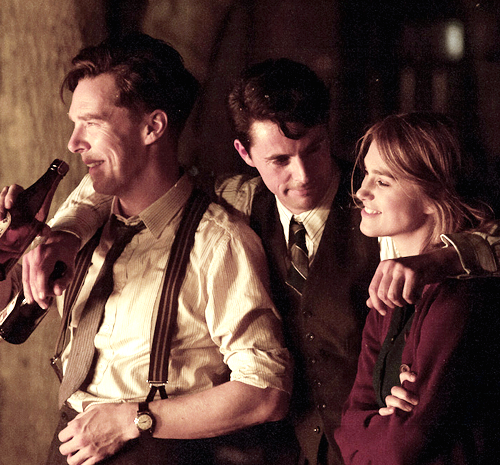
Another thing “The Imitation Game†has over “The Fifth Estate†is we see the consequences if the code-breakers do not succeed. Failure means not being able to foresee German attacks on British soil. As the team works tirelessly at Bletchley Park, we see London citizens forced to hide in the underground to avoid bombing attacks, and brief scenes of British ships at sail being wiped out by German planes. We don’t just see high-level diplomats fired from their lofty positions. We see ordinary citizens like us affected by the war, and the frustration mount amongst the team the longer they can’t crack the code.
“The Fifth Estate†also tried to present the morally ambiguous nature of its premise, but ended up waffling so much we no longer cared who was in the right or who was in the wrong. “The Imitation Gameâ€, meanwhile, acknowledges the chess-like manner of war even after the Enigma code is cracked. Turing and his associates quickly realize that giving warning over every German attack would mean the Nazis eventually realizing that Enigma has been exposed, possibly giving way to a new code they can’t solve. They are forced to literally choose who lives and who dies just to gain an advantage in the fight. We see the team fracture over this, and Turing’s guilt over what he’s forced to do.
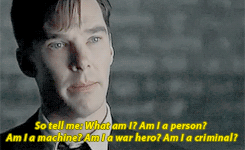
What’s more, because we’ve gotten to know him over the course of the film, our hearts are broken for him when he’s charged over his buried homosexuality and forced to be chemically castrated in lieu of jail. Julian Assange had the luxury of hiding in an embassy when the world wanted his throat. Turing spent the last of his life alone and in misery just for the slim chance to continue his work. He saved his country, and ultimately that country threw him to the wolves.
I think, right there, is what separates “The Imitation Game†from “Fifth Estateâ€: the human element. Film and stories require a connection to the characters and a feeling of consequence if they succeed or fail. If they get invested, we get invested.
One film went down the right path, and the other went down the wrong one. If the Oscar nominations and successful box office of “The Imitation Game†are any indication, its all the better for it. And it didn’t even need to bring a laptop into a nightclub.

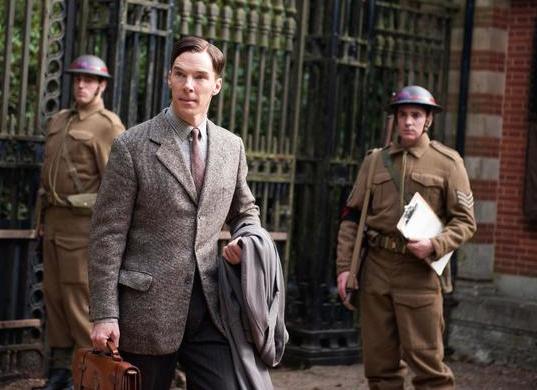
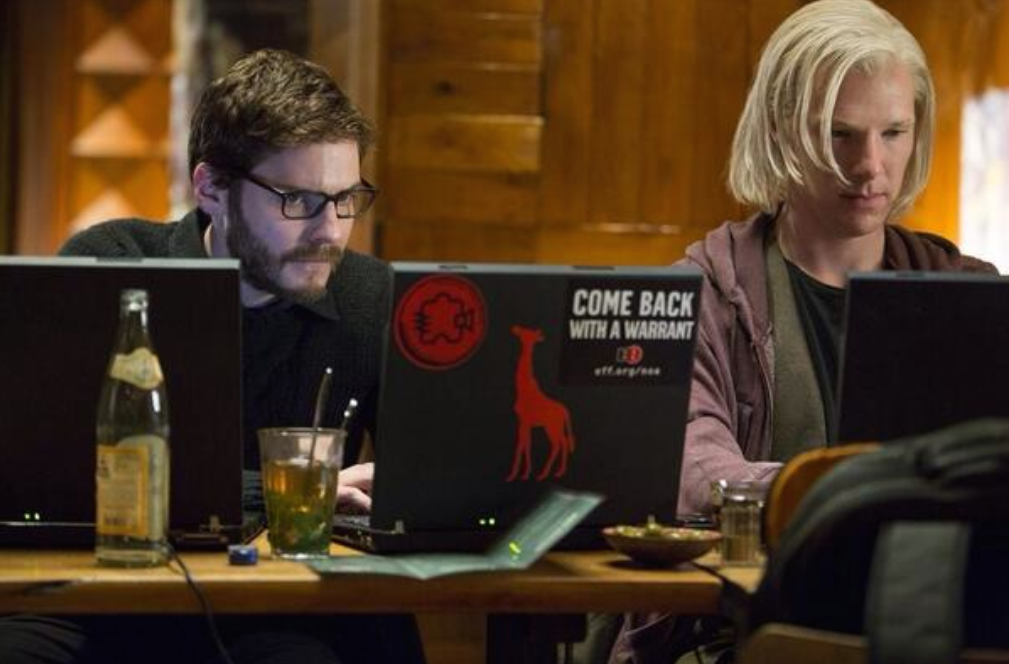
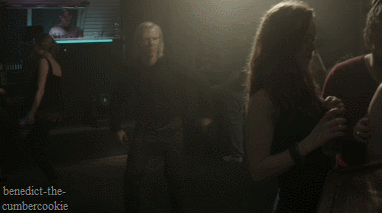
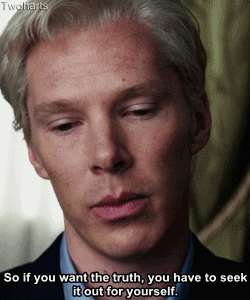
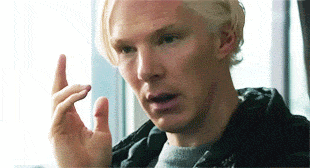



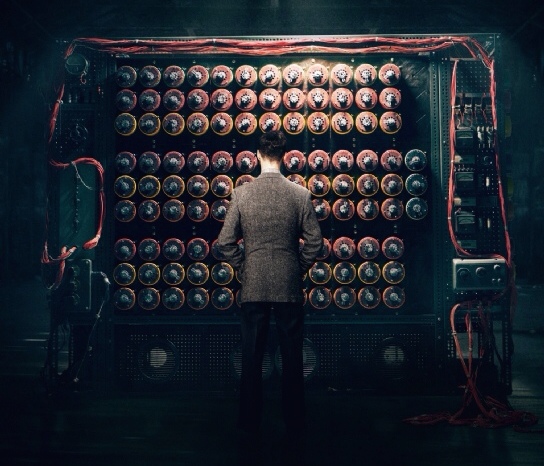
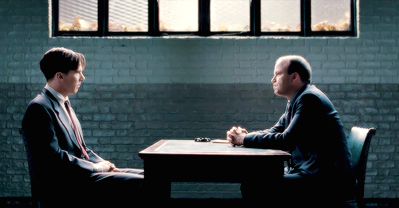

Discussion ¬